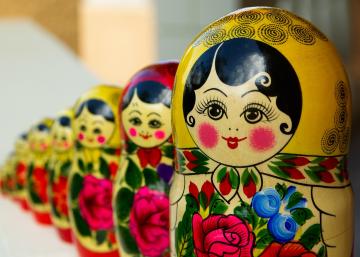
By Gail Hochachka
The plasticity of meanings about climate change has garnered a fair bit of attention to date. While many studies on it have "looked at" the diversity of meanings, fewer have "looked as" the meaning-maker.
Here, in this open-access article, I try to understand why we make meaning so differently by analyzing photo voice data from a previous study in a new way. Using a modified STAGES model in collaboration with Dr. Terri O'Fallon, and in close connection with Dr. Karen O'Brien and the AdaptationCONNECTS research group at the University of Oslo, I have tried to get at the deeper mechanisms behind how meaning is coordinated in the consciousness of the meaning-maker.
The article provides new insights into how we might understand the multitude of climate change meanings—not so much as a result of our 'pet preferences' but rather as views derived by perspective-taking capacities, which enfold earlier versions into more complex later ones, like matryoshkas, or Russian dolls. In so doing, this invites us to release the hold that the technical-scientific definition has on the matter, and to support the sovereignty of other ways of knowing about and acting on an issue that affects us all. The potential of this is quite exciting, as with different “climate changes” there too may be different “adaptations,” some of which may have greater staying power and sustainability if they are actually seeded in the ground of one’s own consciousness.
Please take a read, and pass it along.
Matryoshka Image by jacqueline macou from Pixabay
Publication or release date:
2019
Theme:
